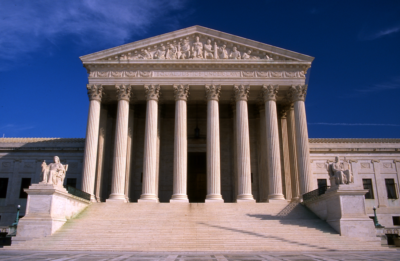 Brett Kavanaugh’s Supreme Court confirmation hearing is slated to begin Tuesday, September 4, at 9:30 a.m. before the Senate Judiciary Committee. It is safe to say that the hearing will be replete with the usual senatorial posturing and pandering. But if they actually get around to asking the nominee some substantive questions, among those that loom largest is how Kavanaugh conceives of the judicial power.
Brett Kavanaugh’s Supreme Court confirmation hearing is slated to begin Tuesday, September 4, at 9:30 a.m. before the Senate Judiciary Committee. It is safe to say that the hearing will be replete with the usual senatorial posturing and pandering. But if they actually get around to asking the nominee some substantive questions, among those that loom largest is how Kavanaugh conceives of the judicial power.
Given his dozen years on the D.C. Circuit, Kavanaugh surely has some thoughts on how to balance the competing concerns of Article III. On one hand, no one wants an ineffective and feeble judiciary, deferential to the other branches of government. Yet, on the other hand, no one wants an activist judiciary, exercising powers that the Constitution reserves for Congress, the executive branch, or the states.
If Kavanaugh has the fortune and dexterity to successfully navigate the confirmation gauntlet, he’ll have an opportunity to consider the proper scope of the judicial role in his first term on the Supreme Court. In April, the court granted CEI’s petition for review in Frank v. Gaos and CCAF filed its opening brief over the summer. Several cogent amicus briefs in support of CEI, including a bipartisan coalition of 19 state attorneys general, raise broad and fundamental questions about the “cy pres” project in which many plaintiffs’ attorneys have been enlisting the federal judiciary.
In rough sketch, the cy pres project calls upon courts to endorse giving class members’ money to unrelated organizations favored by the class’s attorneys. But more than that, it forces courts to act as grant-making legislative institutions, a role outside their jurisdiction and competence. The briefs from the Center for Constitutional Jurisprudence and the Atlantic Legal Foundation, and Lawyers for Civil Justice highlight this issue, with CCJ noting how cy pres converts a bilateral dispute between plaintiffs and defendant into a trilateral affair where a non-injured organization winds up with the money. In many cases it’s more like converting the case into a multi-headed hydra with multiple organizations all jockeying for the class members’ coveted settlement funds.
Judge Kavanaugh’s former colleague on the D.C. Circuit Court of Appeals, Judge Janice Rogers Brown expressed similar views on the unconstitutionality of permitting judges to act as philanthropic foundations. She wrote, “A court risks violating Article III justiciability requirements should it adjudicate disputes between cy pres recipients and would-be recipients, as none would possess an injury in fact. In this trilateral process, there is no neutral, adjudicative standard by which a court can determine” who should get the money.
Kavanaugh did not sit on that case so his views remain unknown, but by the end of his first term we may know whether he agrees with Judge Brown’s view or whether judges should act as legislative grant makers.
